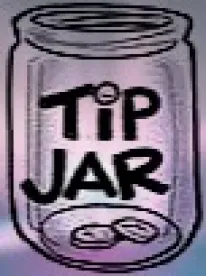Nevada law permits employers to establish mandatory tip pools, even when the tip pooling procedure requires gratuities to be shared among employees of different ranks, so long as the employer does not keep any of the tips for itself, the Nevada Supreme Court has held. Wynn Las Vegas, LLC v. Baldonado, et al., 129 Nev., Advance Opinion 78 (Oct. 31, 2013).
Background
Wynn Las Vegas restructured its table-games department in 2006, eliminating floor supervisor and pit manager positions. After the change, the table-games department consisted of casino managers, assistant casino managers, casino service team leads, boxpersons, and dealers. At the same time, the employer also imposed a new tip-pooling policy. Under the new policy, all gratuities are gathered and divided amongst dealers, boxpersons, and casino service team leads.
A group of dealers filed a class action complaint in Nevada state court asserting the employer’s tip-pooling policy violated Nevada wage and hour law (NRS 608.160 and NRS 613.120) because it required them to share their tips with employees working in positions other than as dealers in the table-games department. That complaint was ultimately dismissed, the Nevada Supreme Court holding that the statutes did not provide a private right of action. The dealers then filed an administrative complaint with the Nevada Labor Commissioner. See Baldonado v. Wynn Las Vegas, LLC, 124 Nev. 951 (2008).
The Labor Commissioner denied the plaintiffs’ class action status, allowing only the named complainants to proceed through the administrative process. The Commissioner ultimately determined the employer’s tip-pooling policy did not violate Nevada law. The dealers next petitioned the district court to review the Labor Commissioner’s decision. The district court found the policy violated Nevada law (NRS 608.160) because the policy directly benefited the employer. The district court also determined the Labor Commissioner erred in dismissing the unnamed complainants because the Commissioner had the power to hear a class action case.
Applicable Law
Nevada’s NRS 608.160 makes it unlawful for any person to:
a) Take all or part of any tips or gratuities bestowed upon the employees of that person; and
b) Apply as a credit toward the payment of the statutory minimum hourly wage established by any law of this State any tips or gratuities bestowed upon the employees of that person.
In Alford v. Harolds Club, 99 Nev. 670, 669 P.2d 721 (1983), the Nevada Supreme Court adopted the interpretation of the statute articulated in Moen v. Las Vegas International Hotel, Inc., 402 F.Supp. 157 (D. Nev. 1975). In Moen, a federal district court determined that NRS 608.160 was enacted to prevent an employer from taking employee tips for the employer’s benefit; however, the law did not prevent an employer from collecting employee tips and distributing all of them among other employees.
Tip-Pooling Policy Does Not Violate Law
Before the Nevada Supreme Court, the employer argued the district court erred in imposing a “direct-benefit” test in its NRS 608.160 analysis because, while the case law mentions that employers may derive a benefit from tip pooling, nothing states that tip-pooling policies are unlawful because of those benefits. The dealers asserted that the “direct-benefit” test was the proper way to determine whether an employer had “taken” gratuities from employees in violation of NRS 608.160.
The Supreme Court reversed the lower court decision. First, the Court ruled the Nevada Labor Commissioner’s interpretation of a Nevada regulation (the determination that the law does not permit a class action administrative complaint) was within the meaning of the law and deserved deference. Second, the Court held the employer’s tip-pooling procedures did not violate NRS 608.160 and explicitly rejected the “direct-benefit” test. “Such a test,” the Court stated, “is unworkable because every tip-pooling policy directly benefits the employer in some manner.” The Court found the district court erred in determining the employer’s policy violated NRS 608.160 because the statute “does not prohibit a tip policy that splits the tips among the employees.” Accordingly, because the employer distributed pooled gratuities among its employees and retained none, the Court held the policy complies with NRS 608.160. The Court remanded to the district court for judicial review the dealers’ claims relating to two other provisions of Nevada wage and hour law.
Baldonado clarifies a longstanding ambiguity about the meaning of Nevada’s tip-pooling statute. It resolves the question by holding that employers may require tip pooling, even between members of different ranks, when the employer distributes the entire pool to its employees and keeps none. Unfortunately, the Court’s decision does not clarify whether employers have absolute discretion to determine the employees among whom the tips may be distributed.
Nevada employers who have or are considering implementing tip-pooling agreements should ensure their policies comply with the law.





 />i
/>i
